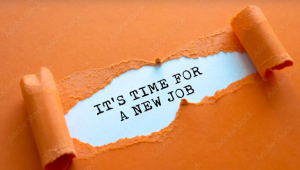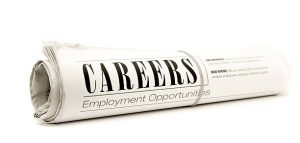Types of Interviews (Part 1)
Most of us are candidates at one stage or another in our lives and many of us are interviewers too. The following summary of interview styles is useful no matter what side of the fence you sit. All job interviews have the same objective, but employers reach that objective in a variety of ways. You…
Most of us are candidates at one stage or another in our lives and many of us are interviewers too. The following summary of interview styles is useful no matter what side of the fence you sit.
All job interviews have the same objective, but employers reach that objective in a variety of ways. You might enter the interview room expecting to tell stories about your professional successes and instead find yourself selling the interviewer a bridge or editing code at a computer. One strategy for performing your best during an interview is to know the rules of the particular game you are playing when you walk through the door.
The Screening Interview
Companies use screening tools to ensure that candidates meet minimum qualification requirements. Computer programs are among the tools used to weed out unqualified candidates. Sometimes human professionals are the gatekeepers. Screening interviewers often have honed skills to determine whether there is anything that might disqualify you for the position. Remember – they do not need to know whether you are the best fit for the position, only whether you are not a match. For this reason, screeners tend to dig for dirt. Screeners will hone in on gaps in your employment history or pieces of information that look inconsistent. They also will want to know from the outset whether you will be too expensive for the company.
Some tips for maintaining confidence during screening interviews:
- Highlight your accomplishments and qualifications.
- Get into the straightforward groove. Personality is not as important to the screener as verifying your qualifications. Answer questions directly and succinctly. Save your winning personality for the person making hiring decisions!
- Be tactful about addressing income requirements. Give a range, and try to avoid giving specifics by replying, “I would be willing to consider your best offer.”
- If the interview is conducted by phone, it is helpful to have note cards with your vital information sitting next to the phone. That way, whether the interviewer catches you sleeping or vacuuming the floor, you will be able to switch gears quickly.
The Directive Style
In this style of interview, the interviewer has a clear agenda that he or she follows unflinchingly. Sometimes companies use this rigid format to ensure parity between interviews; when interviewers ask each candidate the same series of questions, they can more readily compare the results. Directive interviewers rely upon their own questions and methods to tease from you what they wish to know. You might feel like you are being steam-rolled, or you might find the conversation develops naturally. Their style does not necessarily mean that they have dominance issues, although you should keep an eye open for these if the interviewer would be your supervisor.
Either way, remember:
- Flex with the interviewer, following his or her lead.
- Do not relinquish complete control of the interview. If the interviewer does not ask you for information that you think is important to proving your superiority as a candidate, politely interject it.
The Meandering Style
This interview type, usually used by inexperienced interviewers, relies on you to lead the discussion. It might begin with a statement like “tell me about yourself,” which you can use to your advantage. The interviewer might ask you another broad, open-ended question before falling into silence. This interview style allows you tactfully to guide the discussion in a way that best serves you.
The following strategies, which are helpful for any interview, are particularly important when interviewers use a non-directive approach:
- Come to the interview prepared with highlights and anecdotes of your skills, qualities and experiences. Do not rely on the interviewer to spark your memory – jot down some notes that you can reference throughout the interview.
- Remain alert to the interviewer. Even if you feel like you can take the driver’s seat and go in any direction you wish, remain respectful of the interviewer’s role. If he or she becomes more directive during the interview, adjust.
- Ask well-placed questions. Although the open format allows you to shape the interview, running with your own agenda and dominating the conversation means that you can probe for more information.
Learn more about other interviewing styles in the next newsletter. Stay tuned!
The Latest Updates
Let’s look at the current trends in job demand and talent availability in the agriculture and agribusiness sector in Australia over the second half of 2023 and the first quarter of 2024. There was a weakening of job demand in this sector but a slight improvement in candidate availability and job interest during this period….
In times past, people’s working lives often played out over many years at one company, but now the world has vastly changed. These days it is common to shift between jobs and organisations, but this practice raises questions as to what is today considered the Goldilocks time to spend in a job? How often do…
Employee retention matters. Organisational issues such as training time and investment, lost knowledge, mourning, insecure co-workers and a costly candidate search aside; failing to retain a key employee is costly. Various estimates suggest that losing a middle manager costs an organisation up to 100 percent of their salary. The loss of a senior executive is…











